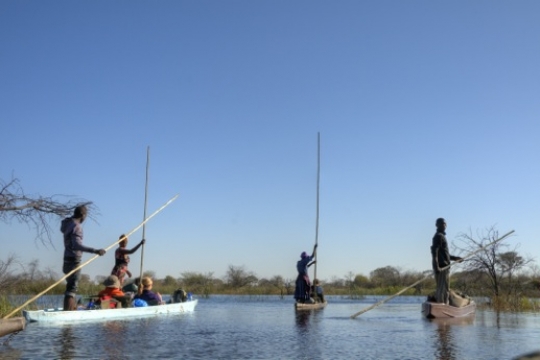When ecotourism lodges employ people from within some remote communities in Southern Africa, they are often giving them their first permanent job. This highlights the importance of these staff being given adequate training as they fill their posts.
This is the finding of economist and tourism expert Dr Sue Snyman, whose doctoral research looked at the development implications associated with sixteen lodges in six countries in the region, South Africa, Botswana, Zambia, Namibia, Zimbabwe and Malawi.
‘I interviewed 385 people at these different lodges, and nearly two thirds of them said that this was their first permanent job.’
Many of these operations do offer staff training and skills development as part of the job package, she says, or together with community business partners.
‘Training like this allows the staff to feel more confident in their abilities, and also to take control of their own development.’
This is just one of many ways in which the private sector can help drive development in remote communities where few other employment opportunities exist.
‘Speaking to these staff, I found that for every person employed, they were, on average, supporting seven people back home. This shows how the wages earned by these staff members translate into welfare benefits for their families,’ she says.
However, Snyman also cautioned that it was necessary to spread employment across as many households as possible, so that more people in a community could benefit from the wages they earn. Having a number of people from one family employed in an ecotourism business tends to narrow the trickle-down benefits.
Snyman wrote up these findings for a case study contribution to a new title by Routledge, Tourism and Development in Sub-Saharan Africa: current issues and local realities.
Ecotourism has long been regarded as an important potential contributor to rural economic development in the region, something which the book tries to interrogate by drawing on the expertise of practitioners and academics with experience in the sector right now.
For more information on the book, visit Google Books.
